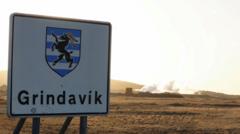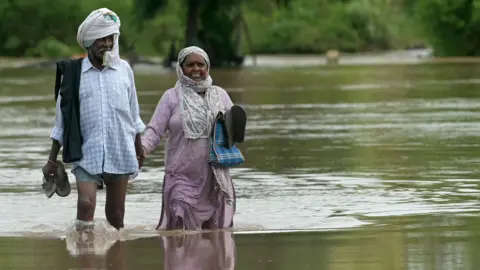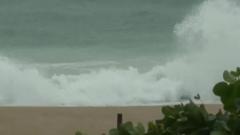A volcanic eruption erupted on Iceland's Reykjanes Peninsula today, with the Iceland's Meteorological Office confirming the activity commenced at approximately 09:45 local time (10:45 BST). The eruption has been localized just north of Grindavík, prompting immediate evacuations. Notably, the fissure that has emerged has already expanded to a width of 700 meters (approximately 2296 feet) within the first hour of the eruption.
Prior to the eruption, the region experienced significant seismic activity, with hundreds of earthquakes recorded since early morning around the Sundhnúks Crater Row, which set the stage for this volcanic event. In anticipation, authorities had already issued evacuation orders for Grindavík and the nearby Blue Lagoon spa, a well-known tourist attraction. Roads leading to the town have been closed for safety reasons, although airline services remain operational.
As of 11:00 local time, the fissure was reported to be extending southward, with a new crack also opening up. Officials have reiterated warnings for any remaining residents in Grindavík to evacuate, as some individuals previously disregarded the safety orders. Police Chief Úlfar Lúðvíksson highlighted that only about 40 homes were still occupied after a mass evacuation took place last November following earlier volcanic activity.
In total, around 4,000 residents from Grindavík were evacuated ahead of previous eruptions that transpired from December 2023 through to March 2024. The current magma tunnel formed beneath the crater system now extends approximately 11 km (6.8 miles), representing the longest measured length since November 11, 2023. According to the Meteorological Office, wind patterns suggest that volcanic gases may drift northeast toward the capital area.
The Reykjanes Peninsula has witnessed multiple eruptions since 2021, a significant increase in volcanic activity compared to its last prolonged eruption cycle over 800 years ago, which sustained for several decades. Iceland's geological landscape includes 33 active volcanic systems positioned atop the Mid-Atlantic Ridge, the point of intersection for two substantial tectonic plates.


















